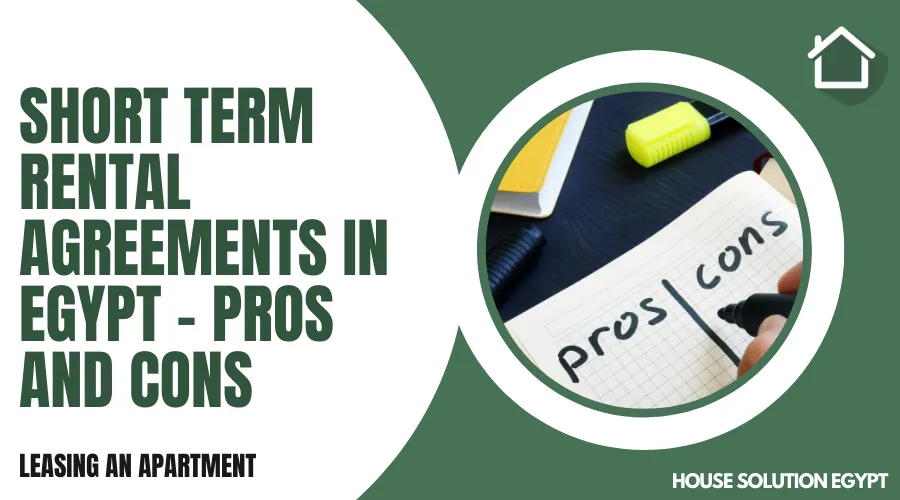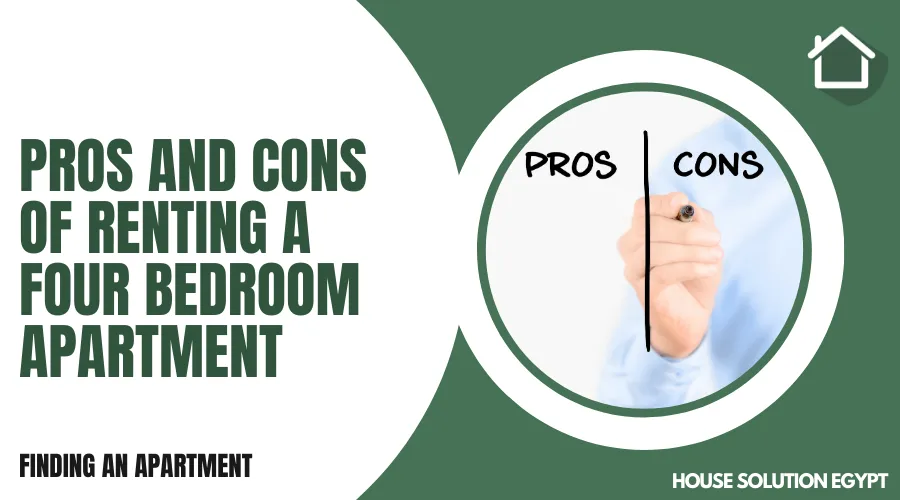ALL YOU NEED TO KNOW SHORT TERM RENTAL AGREEMENTS
Renting an Apartment|7.5 MIN READ|Updated on: 02 May 2024|Written by: Marwa Samir
When it comes to short-term rental agreements, there are a few things that you need to keep in mind. First and foremost, it is important to understand the terms of the agreement before signing anything. This means carefully reading through all of the fine print and asking any questions you may have.
One key aspect of short-term rental agreements is the length of the rental period.
Typically, these agreements cover stays lasting anywhere from a few days to several weeks or months. It is important to be clear on how long your stay will be and what your obligations are during that time.
Another important consideration when entering into a short-term rental agreement is the payment schedule. In most cases, renters will be required to pay some form of deposit upfront, with the remainder due upon arrival or shortly thereafter. Make sure you understand exactly what fees are involved and when they are due so that there are no surprises down the line.
What is a Short-Term Rental Agreement?
A short-term rental agreement is a contract between a landlord or property owner and a tenant who plans to rent the property for a brief period, usually less than six months. This type of rental arrangement is popular with vacationers, students, seasonal workers, and business travelers who need accommodation for only a few days or weeks. A short-term rental agreement outlines the terms and conditions of the tenancy, including the duration of stay, rent payment schedule, security deposit amount, maintenance responsibilities, and termination clauses.
Short-term rental agreements is that they often require tenants to pay upfront fees such as cleaning fees or booking deposits. These fees are designed to protect landlords against any damages caused by tenants during their stay. Additionally, some short-term rental agreements may prohibit subletting or restrict the number of guests allowed on the property.
Overall, if you plan to rent out your property for a short period, it's important to have a written agreement in place so that both parties understand their rights and obligations. Whether you're renting out your apartment on Airbnb or offering your beach house for summer vacation rentals, having clear guidelines in place can help ensure a smooth and hassle-free experience for everyone involved.
Advantages of Short-Term Rentals
Short-term rentals offer several advantages to both landlords and tenants. For landlords, short-term rentals provide a more flexible arrangement that allows them to adjust their rental rates according to the current market trends. This can help maximize profits, especially during peak seasons when demand is high. Additionally, short-term renters are often willing to pay a premium for convenience and flexibility, which can make it easier for landlords to earn more money.
For tenants, short-term rentals provide a cost-effective alternative to traditional long-term leases. Short term agreements allow renters who need temporary accommodation such as students or professionals on assignment in another city without having to commit themselves for extended periods of time. Moreover, they offer greater flexibility in terms of location since they are available in popular tourist destinations like beachfront properties or inner-city apartments.
Short-term rental agreements also allow tenants more freedom when it comes to using the space they are renting out. Unlike traditional leases that come with strict rules about how tenants can use their rented space, short term agreements generally have fewer restrictions as tenants only stay for a limited period of time.
Disadvantages of Short-Term Rentals
One of the significant issues with short-term rental agreements is that they can disrupt the peace of a neighborhood. It's not uncommon for homeowners to rent out their homes for short periods, and this can lead to an influx of people coming and going into a residential area. This sudden increase in foot traffic, noise levels, and general activity can be very disruptive to those who live there permanently.
Another disadvantage is the potential damage caused by renters. Short-term renters are often less careful than long-term tenants because they do not have a vested interest in maintaining the property's condition. The wear and tear on furniture, appliances, plumbing fixtures, and other items may be more pronounced because guests are only staying for a brief period.
Short-term rentals could also lead to legal concerns for both landlords and tenants. Many cities require permits or licenses to operate vacation rental units legally. Moreover, some buildings or communities may prohibit short-term rentals altogether due to zoning laws or condo regulations. Violating these rules could result in hefty fines or even eviction notices from landlords or building managers.
Types of Agreements
While there are several types of agreements related to short-term rentals, the most common ones include the rental agreement and the lease agreement. Rental agreements are generally used for a shorter period, such as a few weeks or months, while lease agreements tend to have longer terms, typically six months or more. Both rental and lease agreements outline the responsibilities of both parties involved in renting a property. These may include details about rent payments, security deposits, maintenance responsibilities, and rules governing tenant behavior.
Another type of agreement is booking confirmation. This outlines specific dates that travelers are reserving for their stay at a short-term rental property. The booking confirmation includes information about payment schedules, cancellation policies, and other details relevant to making reservations.
Finally, some short-term rentals require guests to sign liability waivers. These waivers help protect owners from legal responsibility if someone is injured during their stay on the property. While not all properties require these waivers as part of their rental arrangements, they can be useful in situations where guests will be participating in activities that could be considered high-risk or dangerous.
Terms and Conditions to Include
When drafting a short-term rental agreement, it is important to include specific terms and conditions that will protect your interests as the property owner. Firstly, you should include details on payment terms, including the amount of rent payable upfront and how often payments are due. You may also want to include penalties for late payments or bounced checks.
Another key clause to consider is the security deposit requirement. This should clearly outline how much is required as a deposit when it will be returned (if at all), and under what circumstances it can be forfeited. This information will help ensure that tenants understand their financial obligations and encourage them to take care of your property during their stay.
It's important to outline restrictions on the use of the property in order to safeguard against damage or misuse. These can cover issues such as noise levels, smoking, or pets in the property – but make sure these restrictions comply with local laws so they can be enforceable. By including all relevant terms and conditions in your short-term rental agreement, you'll have a comprehensive legal document that protects both you and your tenant throughout their stay.
How to Negotiate an Agreement
Negotiating an agreement is a crucial step in any business transaction, especially when it comes to short-term rental agreements. One of the keys to successful negotiation is preparation. Before entering into discussions with the other party, you should research and understand all aspects of the agreement, including terms and conditions, timelines, payment requirements, and any potential issues that may arise.
Once you have prepared yourself thoroughly, it's important to articulate your goals clearly and effectively. This means being open about your needs while also listening carefully to the other party's concerns. It's essential to find common ground where possible while still standing firm on important points.
Once an agreement has been reached - either through compromise or stronger negotiation tactics - it's critical that both parties review and sign off on all terms before moving forward. This will help ensure that everyone stays on track and meets their obligations under the agreement. By following these steps and remaining focused on achieving positive outcomes for all involved parties, negotiating a short-term rental agreement can be a smooth process that benefits everyone involved.
Conclusion: Benefits of Short-Term Rental Agreements
In conclusion, there are several benefits of short-term rental agreements. First and foremost, these agreements offer flexibility to both the landlord and tenant. The lease term is typically shorter than a traditional lease, which allows tenants to move in and out of the property quickly if needed. This can be especially useful for those who are in town for a short period or those who need temporary housing while looking for a more permanent place to live.
Another benefit of short-term rental agreements is the potential for higher revenue. Landlords can charge more per month for a short-term rental than they would for a long-term lease. Additionally, landlords have greater control over their property as they can choose when to make it available for rent and when to keep it occupied by themselves or family members.
Short-term rental agreements provide an opportunity for travelers to experience living like locals in different parts of the world that hotels may not offer.
With platforms such as Airbnb gaining popularity, it's no surprise that people are opting for this type of accommodation instead of traditional hotels.
Overall, short-term rental agreements offer many benefits that cater to both landlords and tenants alike while providing unique travel experiences.





